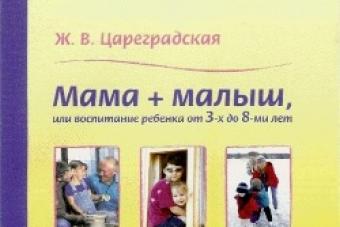"Shrovetide Meeting" - takes place on Monday. In 2018, "Shrovetide Meeting" will take place on February 12th.
People are finishing their last preparations, completing swings and various slides. An obligatory attribute of the event - A scarecrow made of straw, dressed in women's clothing and attached to a stick, is displayed in the middle of the street. The housewives, meanwhile, "conjure" in the kitchen, baking the most delicate pancakes, because it is at Shrovetide that they are so tasty that it is impossible to tear yourself away. The first baked pancake, they never eat - they give it to the beggars or put it outside the window, in memory of the dead. In the evening, everyone gathers at a common table, marking the beginning of the festive week and making a plan for further events
About 50 days before Easter, Maslenitsa began to be celebrated in Russia, Monday is the meeting of this merry holiday. He opened a week of folk festivities dedicated to the farewell to winter and the arrival of the long-awaited spring.
Shrovetide is a pagan holiday that had a deep meaning for the Slavs. Its origins go back to the cult of the Sun - the main deity in Slavic mythology. The Shrovetide personified the cold winter, from which our ancestors sought to say goodbye as quickly as possible. During her farewell, the peasants asked the gods for favorable weather and a good harvest. And in order to win over the heavenly body, they baked pancakes. They were a kind of sacrifice to the gods, resembling the sun in shape and color.
Read more about the Maslenitsa holiday.
The church tried to eradicate pagan traditions from the consciousness of people, but the customs of their ancestors turned out to be stronger. Therefore, the clergy had to put up with it. Farewell to Maslenitsa is held annually at the end of February on the eve of Lent. In Orthodoxy, the days of celebrating the farewell to winter began to be called cheese days. 
Today Maslenitsa week has turned into merry folk festivals devoid of religious or mystical meaning. But in the past, celebrating the end of winter was strictly routine. Every day even had its own name.
Everyone in the village, young and old, knew what rules exist for each family member on a specific day of Shrovetide week.
Preparation for the start of the celebrations
Despite the fact that the first day of Maslenitsa was Monday, preparations for the holiday began on the weekend. On Saturday, the children collected sandals and greeted fellow villagers returning from the fair with the question of whether they were taking Maslenitsa. If the answer was no, the owner of the cart could be slightly beaten with bast shoes.
The day before Maslenitsa was called "Meat Sunday". From morning until evening, relatives and neighbors went to visit each other, inviting them to celebrate the upcoming farewell to winter. Mass seven-day festivities were considered a time of strengthening family ties, especially if the couple recently got married. Therefore, visits by relatives from both sides were mandatory.
Today it is customary to call Maslenitsa wide, and in the old days in Russia, the entire festive week was divided into 2 parts. Narrow Maslenitsa included the first 3 days of festivities: Monday - "Meeting", Tuesday - "Flirting", Wednesday - "Lakomka". It was a kind of preparation for the main events.
The wide Shrovetide began with "Fracture" on Thursday, continued with "Mother-in-law's evenings" and "Sister-in-law's gatherings" on Friday and Saturday and ended with "Kselovalnik". That was the name of Sunday, the 7th day of the festivities, on which the final farewell to Maslenitsa took place.
Traditions of meeting Maslenitsa in Russia
On the 1st Shrovetide day, it was allowed to sleep longer than usual. The Slavs believed that a long sleep is a good sign for a future harvest. After the awakening of all family members, everyone took up their own business. The hostess of the house began to prepare the dough to bake pancakes, and from the very morning the whole village was filled with unique aromas.
Read about recipes for delicious pancakes for Shrovetide.
There were several main rules for meeting Maslenitsa:
- The first pancake was always given to the beggars so that they commemorated their departed relatives. The peasants believed that the deceased had a certain power over the elements, so they tried to pay tribute to the deceased loved ones and thus ask them for good weather conditions for the future harvest.
- Children helped adults by doing Maslenitsa on Monday - a large straw doll dressed in a woman's outfit. The scarecrow of Maslenitsa was carried by the children in a sleigh through the streets, knocking on all houses and singing merry songs. It was customary to give pancakes to children in every yard.
- Everyone should have looked at the stuffed Maslenitsa. Even old and feeble people tried to go out at least on the porch to meet an unusual guest. There was a belief that those who did not meet Maslenitsa would soon die.
In the morning, the daughter-in-law went to her parents' house to bake pancakes, and in the evening the father-in-law came to visit their matchmakers to taste a treat and plan the festive week.
- On the first day of Maslenitsa, skiing began with ice slides. But on Monday only children could take part in this fun entertainment. They sang fervent songs and ditties, in which they glorified Maslenitsa and the imminent onset of spring.
- The meeting was noisy and fun. It was believed that as Maslenitsa is celebrated, this will be the harvest: the louder the songs, the longer the flax will grow in the fields.
- Adults did not participate in winter fun. They were busy with the final preparations for the upcoming Maslenitsa "Flirting": men were completing booths for performances, puppet theaters, filled with ice slides and created snow towns, and women prepared delicious treats and, of course, the main dish - pancakes.
Each hostess tried to show herself as the most skillful craftswoman and surprise relatives and friends with her culinary talent.
Pancakes were served with sour cream and cottage cheese, with various types of jam and honey, with salted fish and meat.
Monday preceded the main Maslenitsa festivities, but despite the fact that the whole day was spent worrying about preparing for the upcoming holiday, in the evening the youth rode on a swing, sang songs, joked and celebrated the Maslenitsa meeting quite noisy and joyfully. The festive events of the first day were closed by the traditional fist fight.
How is Maslenitsa being met today?
The traditions of celebrating Maslenitsa week have survived today, but have lost their sacred meaning. Strict observance of the rituals of meeting spring and seeing off winter has survived only in small villages remote from large cities.
Read how to guess on Maslenitsa.
The first day of Maslenitsa no longer has that clear schedule that existed in the old days. Only pancakes remain unchanged, which are baked in every home, and are also offered in stalls to everyone who takes part in festivities in squares and in parks of megalopolises.
On the first day, they still make a doll from improvised material, dress it up in old women's clothes, put it on a long stake and set it up where folk festivals take place. All week the scarecrow is in one place, it is not carried from house to house, as before, but simply burned on the last day of Maslenitsa, saying goodbye to winter.
In some localities, the custom has been preserved to go home as mummers, sing Shrovetide songs and receive coins and sweets in return. But in big cities, this tradition has practically disappeared.
In many families, Maslenitsa is not met at all, but they begin to bake pancakes and treat friends and acquaintances towards the end of the festive week. Widespread Shrovetide festivities are held only on Forgiveness Sunday - the last day before Lent.
Shrovetide days The first day (Monday) - Shrovetide meeting. The first day (Monday) - Shrovetide meeting. The second day (Tuesday) is a playful one. The second day (Tuesday) is a playful one. The third day (Wednesday) is a gourmet. The third day (Wednesday) is a gourmet. The fourth day (Thursday) - revelry, break. The fourth day (Thursday) - revelry, break. The fifth day (Friday) - the mother-in-law of the party. The fifth day (Friday) - the mother-in-law of the party. The sixth day (Saturday) - the sister-in-law's gatherings. The sixth day (Saturday) - the sister-in-law's gatherings. The seventh day (Sunday) - farewell, forgiveness, kissing, forgiveness. The seventh day (Sunday) - farewell, forgiveness, kissing, forgiveness.

The first day - Meeting of Maslenitsa Slides, swings, booths for buffoons were built. Children began to shout: "Maslenitsa has arrived, Maslenitsa has arrived!" and arranged fistfights in honor of the arrival of our dear guest. Slides, swings, booths for buffoons were built. Children began to shout: "Maslenitsa has arrived, Maslenitsa has arrived!" and arranged fistfights in honor of the arrival of our dear guest.

Tuesday - Flirting For flirting in the morning, girls and fellows went on a visit - to ride the mountains, eat pancakes. They were invited to visit with the words: "Our mountains are ready and pancakes are baked - you are welcome!" In the morning, the girls and fellows went to visit for flirting - to ride on the mountains, to eat pancakes. They were invited to visit with the words: "Our mountains are ready and pancakes are baked - you are welcome!"



A huge number of proverbs and sayings are dedicated to this holiday. The first pancake is lumpy The first pancake is lumpy. under an oat pancake: it will fry and fall off by itself Not everything for the cat is Shrovetide, there will be Great Lent Not everything for the cat is Shrovetide, there will be Great Lent Shrovetide of oatmeal, money for the garbage Maslenitsa for food, money for the garbage At least something to lay off, but spend Carnival from yourself , but to spend Shrovetide Without pancakes - not Shrovetide Without pancakes - not Shrovetide

But the most important thing is pancakes! Pancake is a symbol of the sun. The same round and hot. In the heat of the heat they are served on the table. With butter, sour cream, caviar, mushrooms, sevruga or sturgeon - choose for every taste. And, having eaten your fill - go for a walk and have fun! But the most important thing is pancakes! Pancake is a symbol of the sun. The same round and hot. In the heat of the heat they are served on the table. With butter, sour cream, caviar, mushrooms, sevruga or sturgeon - choose for every taste. And, having eaten your fill - go for a walk and have fun!

Thursday - Revelry Since Thursday, which was called "wide" for a reason, the Pancake week has been unfolding in full swing. The whole world, as participants or active, interested spectators, went to fistfights, the construction and capture of a snowy city, horse races, riding along the streets. Since Thursday, which was called "wide" for a reason, the Pancake week was unfolding in full swing. The whole world, as participants or active, interested spectators, went to fistfights, the construction and capture of a snowy city, horse races, riding along the streets.

Friday - Mother-in-law's evenings If on Wednesday the sons-in-law were visiting their mother-in-law, then on Friday the sons-in-law arranged “mother-in-law's evenings” - they invited them to pancakes. All relatives also receive invitations. If on Wednesday the sons-in-law were visiting their mother-in-law, then on Friday the sons-in-law organized “mother-in-law evenings” - they were invited to pancakes. All relatives also receive invitations. In the old days, the son-in-law was obliged to personally invite his mother-in-law in the evening, and in the morning he sent ceremonial calls to her. The more urges, the more honorable it is for a mother-in-law. For their troubles, the entrants received gifts from both sides. In the old days, the son-in-law was obliged to personally invite his mother-in-law in the evening, and in the morning he sent ceremonial calls to her. The more urges, the more honorable it is for a mother-in-law. For their troubles, the entrants received gifts from both sides.

Saturday - Sister-in-law's gatherings On Saturday, at the sister-in-law's gatherings (the sister-in-law is the husband's sister), the young daughter-in-law invited her husband's relatives to visit her. Here she could boast of her skill and skill. On Saturday, for the sister-in-law's gatherings (the sister-in-law is the husband's sister), the young daughter-in-law invited her husband's relatives to visit her. Here she could boast of her skill and skill.


Resurrection - Forgiven Day On the last day of Shrovetide, everyone asked for forgiveness from each other, the newlyweds went to their relatives, presented their father-in-law and mother-in-law, matchmakers and friends for wedding gifts. On the last day of Shrovetide, everyone asked each other for forgiveness, the newlyweds went to their relatives, presented their father-in-law and mother-in-law, matchmakers and boyfriends for wedding gifts.



About 50 days before Easter, Maslenitsa began to be celebrated in Russia, Monday is the meeting of this merry holiday. He opened a week of folk festivities dedicated to the farewell to winter and the arrival of the long-awaited spring.
Shrovetide is a pagan holiday that had a deep meaning for the Slavs. Its origins go back to the cult of the Sun - the main deity in Slavic mythology. The Shrovetide personified the cold winter, from which our ancestors sought to say goodbye as quickly as possible. During her farewell, the peasants asked the gods for favorable weather and a good harvest. And in order to win over the heavenly body, they baked pancakes. They were a kind of sacrifice to the gods, resembling the sun in shape and color.
The church tried to eradicate pagan traditions from the consciousness of people, but the customs of their ancestors turned out to be stronger. Therefore, the clergy had to put up with it. Farewell to Maslenitsa is held annually at the end of February on the eve of Lent. In Orthodoxy, the days of celebrating the farewell to winter began to be called cheese days.
Today Maslenitsa week has turned into merry folk festivals devoid of religious or mystical meaning. But in the past, celebrating the end of winter was strictly routine. Every day even had its own name.
Everyone in the village, young and old, knew what rules exist for each family member on a specific day of Shrovetide week.
Preparation for the start of the celebrations
Despite the fact that the first day of Maslenitsa was Monday, preparations for the holiday began on the weekend. On Saturday, the children collected sandals and greeted fellow villagers returning from the fair with the question of whether they were taking Maslenitsa. If the answer was no, the owner of the cart could be slightly beaten with bast shoes.
The day before Maslenitsa was called "Meat Sunday". From morning until evening, relatives and neighbors went to visit each other, inviting them to celebrate the upcoming farewell to winter. Mass seven-day festivities were considered a time of strengthening family ties, especially if the couple recently got married. Therefore, visits by relatives from both sides were mandatory.
Today it is customary to call Maslenitsa wide, and in the old days in Russia, the entire festive week was divided into 2 parts. Narrow Maslenitsa included the first 3 days of festivities: Monday - "Meeting", Tuesday - "Flirting", Wednesday - "Lakomka". It was a kind of preparation for the main events.
The wide Shrovetide began with "Fracture" on Thursday, continued with "Mother-in-law's evenings" and "Sister-in-law's gatherings" on Friday and Saturday and ended with "Kselovalnik. That was the name of Sunday, the 7th day of the festivities, on which the final farewell to Maslenitsa took place.
Traditions of meeting Maslenitsa in Russia
On the 1st Shrovetide day, it was allowed to sleep longer than usual. The Slavs believed that a long sleep is a good sign for a future harvest. After the awakening of all family members, everyone took up their own business. The hostess of the house began to prepare the dough to bake pancakes, and from the very morning the whole village was filled with unique aromas. There were several main rules for meeting Maslenitsa:
- The first pancake was always given to the beggars so that they commemorated their departed relatives. The peasants believed that the deceased had a certain power over the elements, so they tried to pay tribute to the deceased loved ones and thus ask them for good weather conditions for the future harvest.
- Children helped the adults by doing Maslenitsa on Monday - a large straw doll dressed in a woman's outfit. The scarecrow of Maslenitsa was carried by the children in a sleigh through the streets, knocking on all houses and singing merry songs. It was customary to give pancakes to children in every yard.
- Everyone had to look at the stuffed carnival. Even old and feeble people tried to go out at least on the porch to meet an unusual guest. There was a belief that those who did not meet Maslenitsa would soon die.
- In the morning, the daughter-in-law went to her parents' house to bake pancakes, and in the evening the father-in-law came to visit their matchmakers to taste a treat and plan the holiday week.
- On the first day of Maslenitsa, skiing began with ice slides. But on Monday only children could take part in this fun entertainment. They sang fervent songs and ditties, in which they glorified Maslenitsa and the imminent onset of spring. The meeting was noisy and cheerful. It was believed that as Maslenitsa is celebrated, this will be the harvest: the louder the songs, the longer flax will grow in the fields.
The adults did not participate in the winter fun. They were busy with the final preparations for the upcoming Maslenitsa "Flirting": men were completing booths for performances, puppet theaters, filling ice slides and creating snow towns, and women preparing delicious treats and, of course, the main dish - pancakes.
Each hostess tried to show herself as the most skillful craftswoman and surprise relatives and friends with her culinary talent.
Pancakes were served with sour cream and cottage cheese, with various types of jam and honey, with salted fish and meat.
Monday preceded the main Maslenitsa festivities, but despite the fact that the whole day was spent worrying about preparing for the upcoming holiday, in the evening the youth rode on a swing, sang songs, joked and celebrated the Maslenitsa meeting quite noisily and joyfully. The festive events of the first day were closed by the traditional fist fight.
How is Maslenitsa being met today?
The traditions of celebrating Maslenitsa week have survived today, but have lost their sacred meaning. Strict observance of the rituals of meeting spring and seeing off winter has survived only in small villages remote from large cities.
The first day of Maslenitsa no longer has that clear schedule that existed in the old days. Only pancakes remain unchanged, which are baked in every home, and are also offered in stalls to everyone who takes part in festivities in squares and in parks of megalopolises.
On the first day, they still make a doll from improvised material, dress it up in old women's clothes, put it on a long stake and set it up where folk festivals take place. All week the scarecrow is in one place, it is not carried from house to house, as before, but simply burned on the last day of Maslenitsa, saying goodbye to winter.
In some localities, the custom has been preserved to go home as mummers, sing Shrovetide songs and receive coins and sweets in return. But in big cities, this tradition has practically disappeared.
In many families, Maslenitsa is not met at all, but they begin to bake pancakes and treat friends and acquaintances towards the end of the festive week. Widespread Shrovetide festivities are held only on Forgiveness Sunday, the last day before Lent.
About 50 days before Easter, Maslenitsa began to be celebrated in Russia, Monday is the meeting of this merry holiday. He opened a week of folk festivities dedicated to the farewell to winter and the arrival of the long-awaited spring.
Shrovetide is a pagan holiday that had a deep meaning for the Slavs. Its origins go back to the cult of the Sun - the main deity in Slavic mythology. The Shrovetide personified the cold winter, from which our ancestors sought to say goodbye as quickly as possible. During her farewell, the peasants asked the gods for favorable weather and a good harvest. And in order to win over the heavenly body, they baked pancakes. They were a kind of sacrifice to the gods, resembling the sun in shape and color.
The church tried to eradicate pagan traditions from the consciousness of people, but the customs of their ancestors turned out to be stronger. Therefore, the clergy had to put up with it. Farewell to Maslenitsa is held annually at the end of February on the eve of Lent. In Orthodoxy, the days of celebrating the farewell to winter began to be called cheese days.
Today Maslenitsa week has turned into merry folk festivals devoid of religious or mystical meaning. But in the past, celebrating the end of winter was strictly routine. Every day even had its own name.
Everyone in the village, young and old, knew what rules exist for each family member on a specific day of Shrovetide week.
Preparation for the start of the celebrations
Despite the fact that the first day of Maslenitsa was Monday, preparations for the holiday began on the weekend. On Saturday, the children collected sandals and greeted fellow villagers returning from the fair with the question of whether they were taking Maslenitsa. If the answer was no, the owner of the cart could be slightly beaten with bast shoes.
The day before Maslenitsa was called "Meat Sunday". From morning until evening, relatives and neighbors went to visit each other, inviting them to celebrate the upcoming farewell to winter. Mass seven-day festivities were considered a time of strengthening family ties, especially if the couple recently got married. Therefore, visits by relatives from both sides were mandatory.
Today it is customary to call Maslenitsa wide, and in the old days in Russia, the entire festive week was divided into 2 parts. Narrow Maslenitsa included the first 3 days of festivities: Monday - "Meeting", Tuesday - "Flirting", Wednesday - "Lakomka". It was a kind of preparation for the main events.
The wide Shrovetide began with "Fracture" on Thursday, continued with "Mother-in-law's evenings" and "Sister-in-law's gatherings" on Friday and Saturday and ended with "Kselovalnik. That was the name of Sunday, the 7th day of the festivities, on which the final farewell to Maslenitsa took place.
Traditions of meeting Maslenitsa in Russia
On the 1st Shrovetide day, it was allowed to sleep longer than usual. The Slavs believed that a long sleep is a good sign for a future harvest. After the awakening of all family members, everyone took up their own business. The hostess of the house began to prepare the dough to bake pancakes, and from the very morning the whole village was filled with unique aromas. There were several main rules for meeting Maslenitsa:
- The first pancake was always given to the beggars so that they commemorated their departed relatives. The peasants believed that the deceased had a certain power over the elements, so they tried to pay tribute to the deceased loved ones and thus ask them for good weather conditions for the future harvest.
- Children helped the adults by doing Maslenitsa on Monday - a large straw doll dressed in a woman's outfit. The scarecrow of Maslenitsa was carried by the children in a sleigh through the streets, knocking on all houses and singing cheerful songs. It was customary to give pancakes to children in every yard.
- Everyone had to look at the stuffed carnival. Even old and feeble people tried to go out at least on the porch to meet an unusual guest. There was a belief that those who did not meet Maslenitsa would soon die.
- In the morning, the daughter-in-law went to her parents' house to bake pancakes, and in the evening the father-in-law came to visit their matchmakers to taste a treat and plan the holiday week.
- On the first day of Maslenitsa, skiing began with ice slides. But on Monday only children could take part in this fun entertainment. They sang fervent songs and ditties, in which they glorified Maslenitsa and the imminent onset of spring. The meeting was noisy and cheerful. It was believed that as Maslenitsa is celebrated, this will be the harvest: the louder the songs, the longer flax will grow in the fields.
The adults did not participate in the winter fun. They were busy with the final preparations for the upcoming Maslenitsa "Flirting": men were completing booths for performances, puppet theaters, filled with ice slides and created snow towns, and women prepared delicious treats and, of course, the main dish - pancakes.
Each hostess tried to show herself as the most skillful craftswoman and surprise relatives and friends with her culinary talent.
Pancakes were served with sour cream and cottage cheese, with various types of jam and honey, with salted fish and meat.
Monday preceded the main Maslenitsa festivities, but despite the fact that the whole day was spent worrying about preparing for the upcoming holiday, in the evening the youth rode on a swing, sang songs, joked and celebrated the Maslenitsa meeting quite noisily and joyfully. The festive events of the first day were closed by the traditional fist fight.
How is Maslenitsa being met today?
The traditions of celebrating Maslenitsa week have survived today, but have lost their sacred meaning. Strict observance of the rituals of meeting spring and seeing off winter has survived only in small villages remote from large cities.
The first day of Maslenitsa no longer has that clear schedule that existed in the old days. Only pancakes remain unchanged, which are baked in every home, and are also offered in stalls to everyone who takes part in festivities in squares and in parks of megalopolises.
Maslenitsa is one of the oldest Russian holidays. Pagan in origin, Maslenitsa peacefully "got on" with the religious traditions of Christianity. From a week of farewell to winter, the holiday turned into a week before Lent - 7 days of rest, fun and hearty food.
Each of the days of Maslenitsa, which this year will last from 4 to 10 March, has its own name and purpose. "The First Regional" tells what and where to do from Monday to Sunday during Pancake Week.
Monday opens the so-called "Narrow Pancake Week" - the first half of the week. Household work is allowed on these days.
The first day of Maslenitsa is called Meeting. According to custom, matchmakers meet, everything happens on the territory of the daughter-in-law's house. She is sent to her parents in the morning, and in the evening the father-in-law and mother-in-law come for her, at the same time agreeing on a place for the general festivities.
On Monday, the construction of snow cities, swings and booths for a mass celebration is being completed. A stuffed animal of Maslenitsa is made from straw and old clothes, which is carried along the streets on a sleigh.
Pancakes are baked on the same day. The first is supposed to be given to the poor neighbors, so that they, not being able to cook pancakes, remember the dead.
Tuesday is called Flirting. On this day, guys and girls get to know each other, ride down hills, go to each other for pancakes. Parents actively encourage this: it is customary to woo the young on Maslenitsa week, because the church forbids weddings on Great Lent. The wedding, if successful, is played on Krasnaya Gorka - the first Sunday after Easter (in 2019, Krasnaya Gorka falls on May 5).
Gourmets are the third day of Pancake Week and the last day of the “Narrow Pancake Week”. On this day, the mother-in-law meets her son-in-law and his friends with a rich treat, and she herself watches the passing feast. By the taste preferences of the son-in-law, one can determine his character. It is believed that if a man reaches for pancakes with salty filling, his character is not easy. Sweet lovers are soft and affectionate.
You can eat plenty of pancakes on Wednesday.
Thursday, or Razgulyay, is the first day of the "Wide Carnival". On this day, it's time to stop chores and start walking.
Both young and old go out into the streets to ride a sleigh, watch fistfights, battles for snow cities, or become their participants, watch. On this day, ritual bonfires are burned and jumped over them.
Friday is called Mother-in-law evenings. On this day, a man meets his wife's mother. She is supposed to be officially invited. The mother-in-law comes to his house with her friends. At the table - songs, fun, good advice about family life.
True, the wife prepares food for all those present.
The day of the sister-in-law, the husband's sister, falls on Saturday. It is called the Cousin's Gatherings. On this day, a woman should call her husband's relatives to her, the main of which is her sister. If she is unmarried, then unmarried girlfriends are supposed to be invited into the house, but if she is married in a church, family people should be next to her. All guests are treated to pancakes, and the sister-in-law is given a nice gift.
The last day of Pancake Week is Seeing Off. On Sunday, an effigy of Maslenitsa is being carried on a sleigh into the field. This is called the "Shrovetide train". Then the scarecrow is burned - this is a "funeral". The ashes are scattered over the fields so that the year is fertile. From that moment on, winter should go away, giving way to sunny and warm spring.
With the advent of Christianity, Farewell to Maslenitsa became known as Forgiveness Sunday. On this day, it is customary to perform the rite of forgiveness in churches, to ask each other for forgiveness for all the insults of the past year. In the evening, as on Monday, the dead are commemorated, and if possible, they visit the cemetery.
Keeping all the traditions of the pancake week is fun and delicious. But in order for Shrovetide to be a joy, and not a burden, you need to eat in moderation and choose only the right pancakes. How to do it, read





